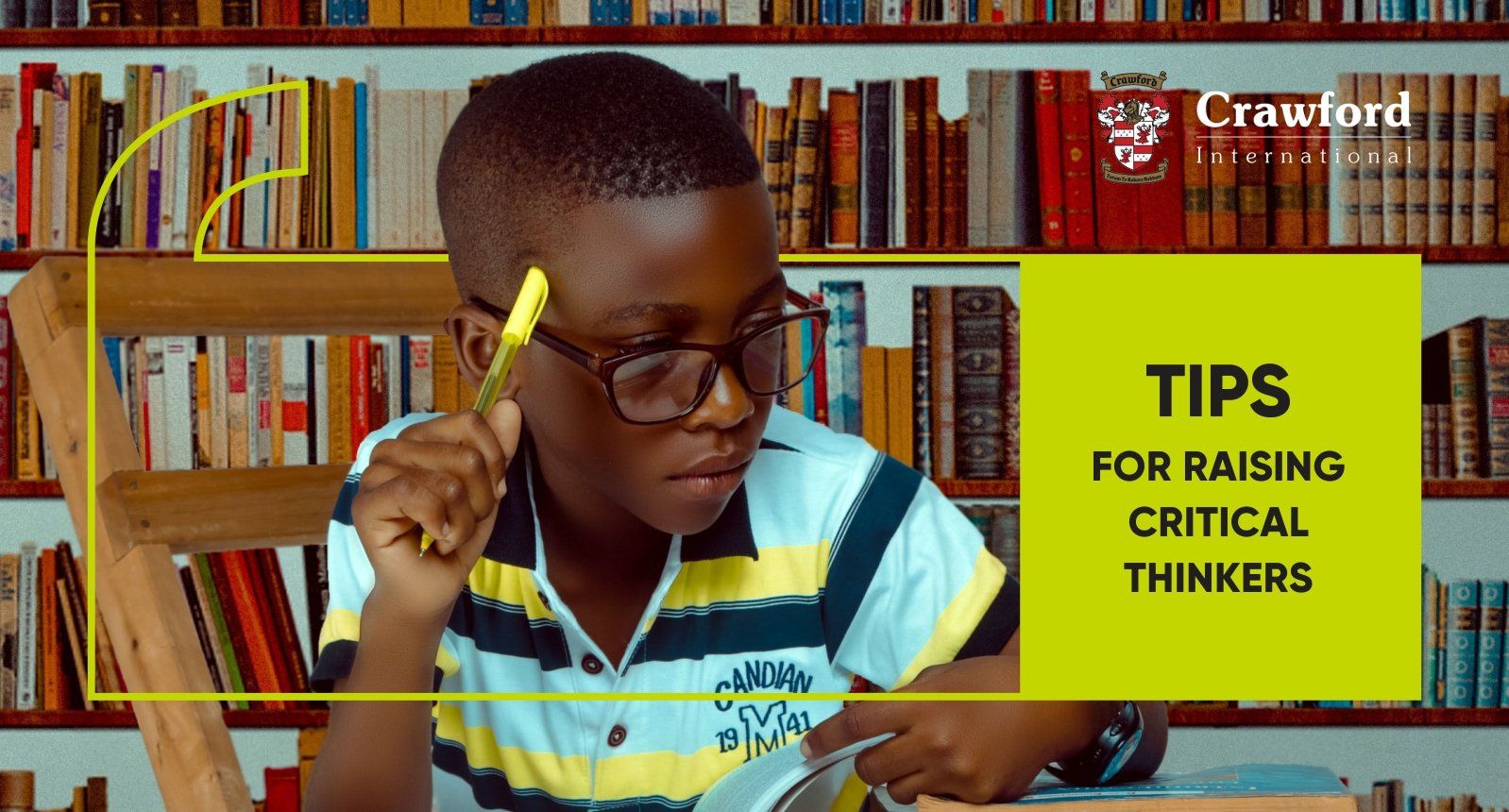Tips for raising a Critical Thinker!
ADvTECH Group • August 5, 2022
If there’s anything we can say with certainty, it’s that change is the only constant.

Living in a world where futures are uncertain and everything feels ever-changing, raising your child as a critical thinker becomes, well, critical. Critical thinkers are those who can think for themselves, who question information that is presented as fact, who can problem-solve and innovate around daily challenges, and who think about how their decisions will impact not only them but others too. If you want your child to do all that, then read on…
What is critical thinking?
Critical thinking falls into a category experts call ‘higher order thinking’ and it’s all about skills that go beyond memorising and repeating information. Being able to imagine, analyse and evaluate information forms the basis of critical thinking. And having the ability to do this helps make sense of that information, and critical thinking skills are an essential part of forming opinions, problem-solving, setting goals, and making decisions. Far from only being something you used in those English comprehension tests, critical thinking skills are a must for us all – they even help our children tell the difference between who is being a good friend and who isn’t.
Why are critical thinking skills important?
Critical thinking skills help your child make sense of the world around them and where they belong in that world – it’s all about the ‘why’ and not the ‘what’. The benefits of critical thinking also include creativity, independence and curiosity.
Being able to use these skills in an academic setting certainly helps with their schoolwork, but critical thinking also helps your child think carefully, communicate clearly, form relationships. and navigate daily challenges and issues like peer pressure. Research has found that children who lack critical thinking skills tend to experience more behavioural problems
What’s more, no matter what your child decides to do in their future career, we know that the jobs of the future are going to involve problem-solving and decision-making.
Teach your child to think critically
Raising a critical thinker becomes a part of your parenting approach when you see it as a natural result of encouraging your child’s independence, and it is something you can start from a very young age. Try incorporating these ideas:
You’re the best role model when it comes to teaching your child just about anything, so model critical thinking in your day to day life. As you work through making a decision, try to talk about it out loud so that your child learns from how you think. It’s also important for your children to see you questioning things, so if you see, hear or read something that seems a bit off-kilter or unethical, talk about it in an age-appropriate way and show your child how you research your way through it.
Kids learn best through play, and engaging with your child through play presents more opportunities for you to not only model but also encourage critical thinking – particularly games and activities that require problem-solving. You could ask them to think critically by asking questions like, “If you do this, what do you think will happen?” and then test their theory out. As your child gets older, look into playing board games and talking about things as a family. Quality time together gives you chance to look at all kinds of things critically.
Solve problems together and encourage them to ask questions. Yes, facing the never-ending gauntlet of, “Mom, WHY?” but asking questions is the very foundation of critical thinking. Should they ask you something you don’t know the answer to, do the research together. In the process, your child is learning how to express themselves, sift through conflicting information, and identify fact. Remember to that there are many ways to solve one problem, and critical thinkers always keep this in mind. So, once you’ve solved a problem together, try exploring other ways of approaching it.
Let them make decisions as a way to get them used to making decisions. Let your child have a say in how they spend their time – let them say no to playdates or parties if they don’t want to go. As they get older, you can start giving them pocket money – and what they do with it is up to them. You could also get them involved in family decisions, such as deciding on weekend activities. Being able to question those in authority is a key tenet of critical thinking, and being encouraged to do so in a supportive environment helps them feel safe to do so.
Always encourage curiosity and an open mind. Critical thinking relies on a person’s ability to be objective, which means putting our own judgements, assumptions and bias aside. Talk about this with your child, and encourage discussion around fairness, diversity and inclusivity in your household as a way to open your child’s mind and instil a level of objectivity in their thinking.
Read more parenting advice articles here.












